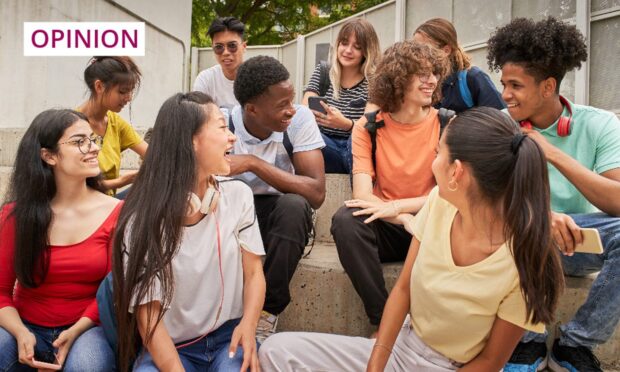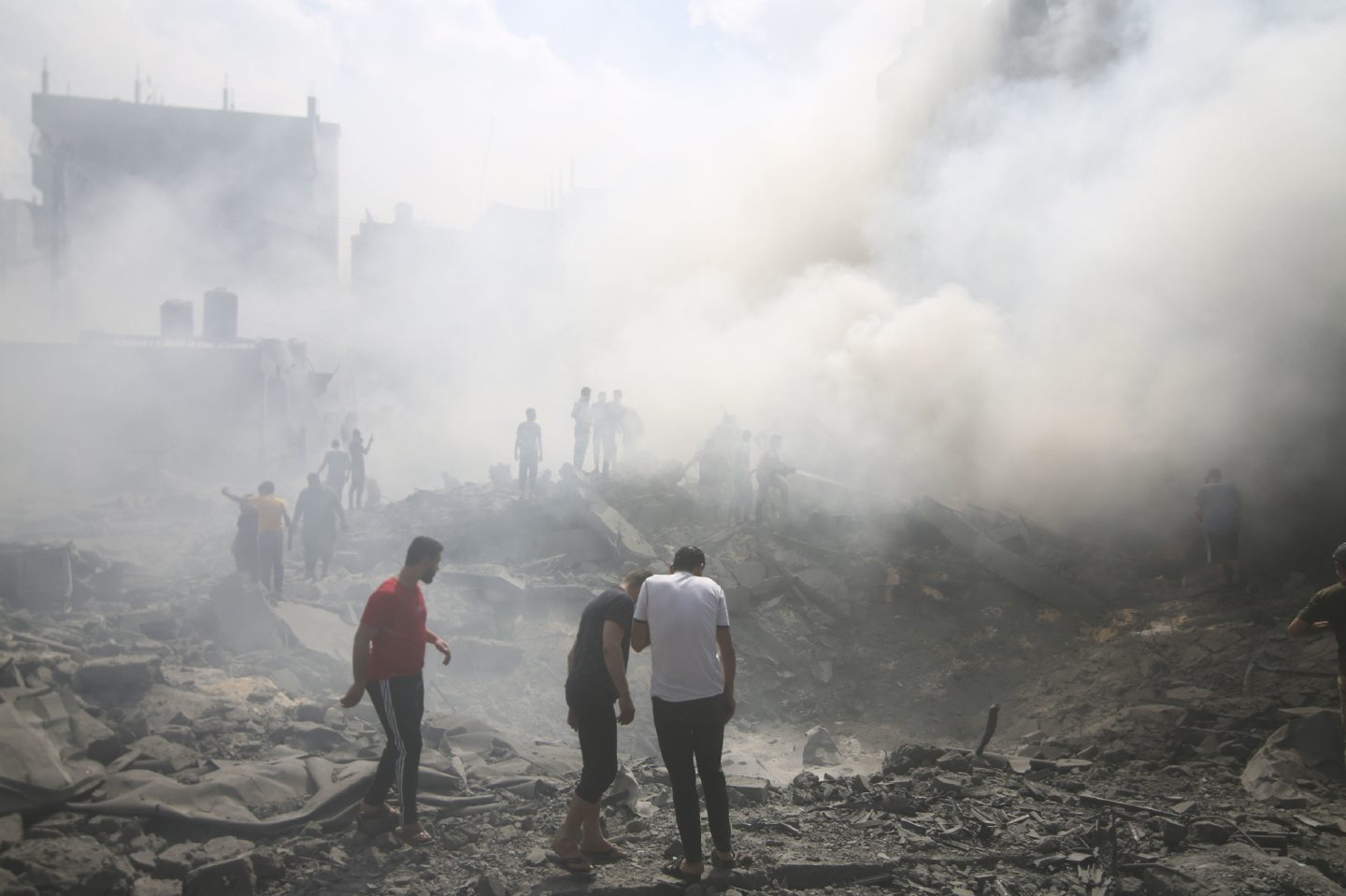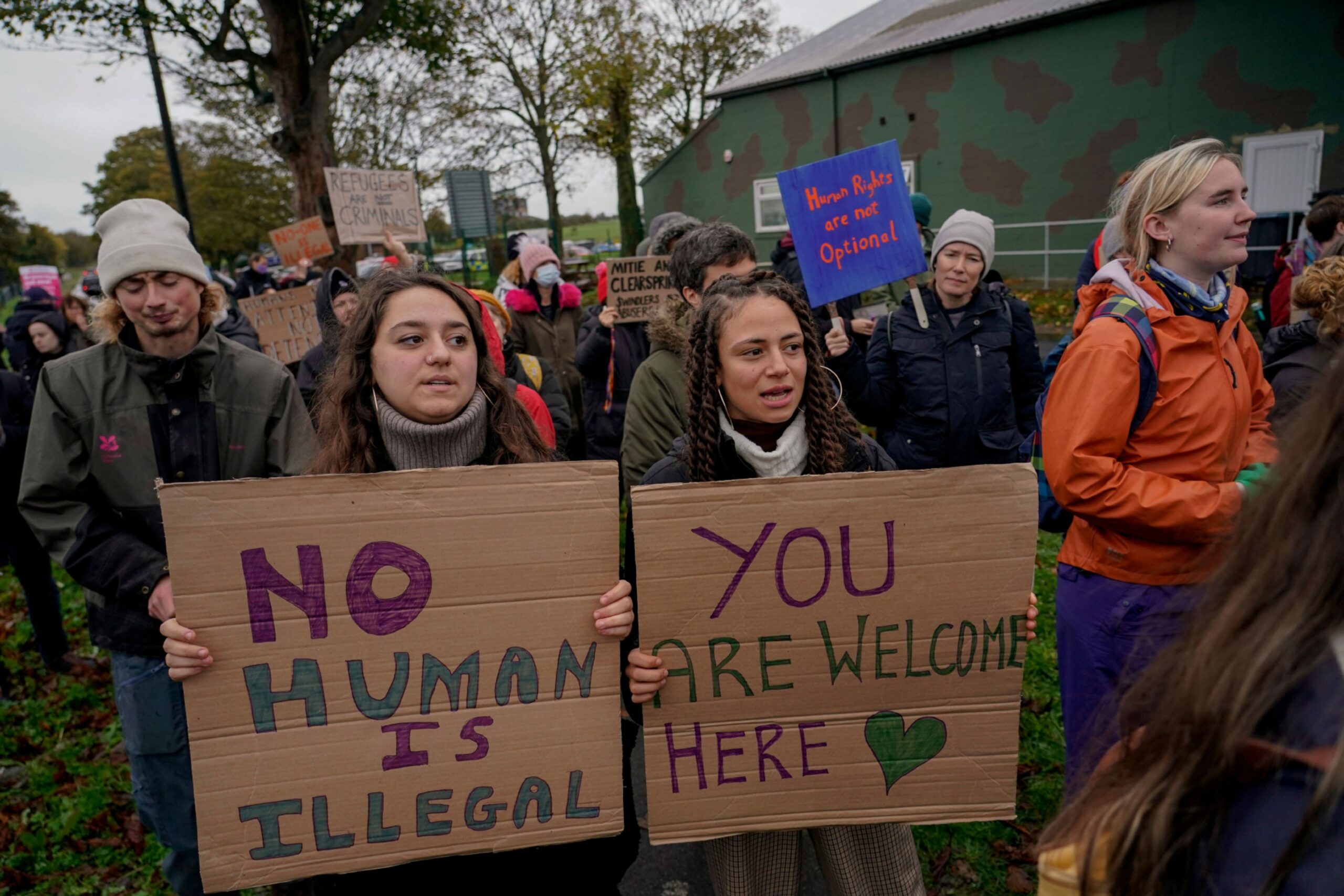Hope feels like quite an elusive emotion this week, or at least it does if you want to live within the world as an active citizen, bearing witness, not turning away or burying your head in the sand.
And, honestly, sometimes burying your head, even just for a few minutes, feels like a coping strategy.
This morning, I made my five and seven-year-old kids breakfast and hid on the stairs while they ate and chatted Pokémon. I read the news reports around the brutal murder of six-year-old Wadea Al-Fayoume in Chicago, hid my tears behind a bit of kitchen roll muttering: “Ugh, my cold is bad this morning” when my eldest asked me what was wrong, maybe held him a bit too tight when he came in for a cuddle.
Then I lay on the bed for three minutes, watching videos of dancing and joy on this weekend’s Strictly. Trying to reset. Not think, not know, for a short amount of time.
My son sought me out. He’d been staying at his gran’s the night before, had gone in to wake her up in the morning and discovered she’d fallen asleep with the television on. The news was playing; he heard the words “hundreds of children dead” and he wanted to know what was happening.
This kid is nosy – has always, always wanted to know what is going on in the adult world. We call him “The Ears”. He’d been worrying over it ever since. I wasn’t able to give him a satisfactory answer.
World news comes in waves and, increasingly, it feels like those waves could pull us all under. Trying to find the energy to keep engaging, to not turn your back on people who are suffering just because you have the privilege to be able to look away, can be a struggle.
Social media seems to require a certain amount of performative engagement; a loud, proud statement of allegiance, a proof of the side taken. There is so much sound and fury. Humans, populations, demographics reduced to soundbites, good or evil, a black-and-white binary.
Meanwhile, a world away from the view beyond your phone screen, people die. Real lives shatter like bombed hospitals.
Some topics transcend language barriers
While my son was encountering things he didn’t understand through a television left on overnight, I was in the south of France at a book festival to talk about the French translation of my last novel. I don’t speak French (to the extent that I caught myself saying “por favor” instead of “s’il vous plaît” in cafes more than once), so, when not on stage with my excellent professional translator, I was floating in a bath of foreign sound, dependent on the charity and language skills of whoever I found myself standing or sitting with.
My generation of UK-schooled citizens are deplorable at languages. The supposed universality of English, bolstered by an insular curriculum which made languages pretty much optional and teaching patchy, has left us not just lazy but arrogant. We go elsewhere and expect to be understood, our deficiency to be catered for, because of – what? Our laziness making us superior?
The opening party did not feel festive; huddled groups, worried faces
Even through the language barrier, though, I could tell there was one topic everyone was talking about. The keywords floated up through the fog.
The opening party did not feel festive; huddled groups, worried faces. The night before, French president Emmanuel Macron’s government had prohibited any sort of pro-Palestinian demonstration. Someone told me a teacher had been murdered in a school in Arras, northern France, that morning; it was being described as terrorism. Things felt closer there.
I felt hopeful when with the future adults of the world
I’d been at a school in Valence at the time of the killing. Two hours in the company of 50 15 to 17-year-olds, all of whom had been learning English since age three, who also all spoke at least one, in many cases two, other languages – German, Italian, Chinese – in addition to their native French.
These kids, I’d been told by the teachers, were mostly from the “suburbs”, which I know from watching film La Haine a lot as a teenager means something very different in France than it does here. The teachers translated it to English for me as “inner-city”; I translated it again for them to “housing scheme”, and that one we agreed on. Basically, these were not the wealthy young people.
There was far wider racial diversity than I would see anywhere else during my stay in the genteel town of Montélimar. We conversed – and it was conversation, not a lecture – about everything from how to write to Scotland to feminism to political activism to world history.
Just being in a space with the future adults of the world – political, friendly and open, committed to equality, eager to learn and determined to make things better – felt transformative on that day. I’ve been holding it as tightly as I can ever since. The sun on those faces in that classroom is what feels like hope right now.
Let’s teach our children other languages. Let’s teach them to be citizens of the world: engaged and able to communicate with and understand as many other humans as possible. Let’s hope they can all live long enough to keep doing that.
Kirstin Innes is the author of the novels Scabby Queen and Fishnet, and co-author of non-fiction book Brickwork: A Biography of the Arches













Conversation